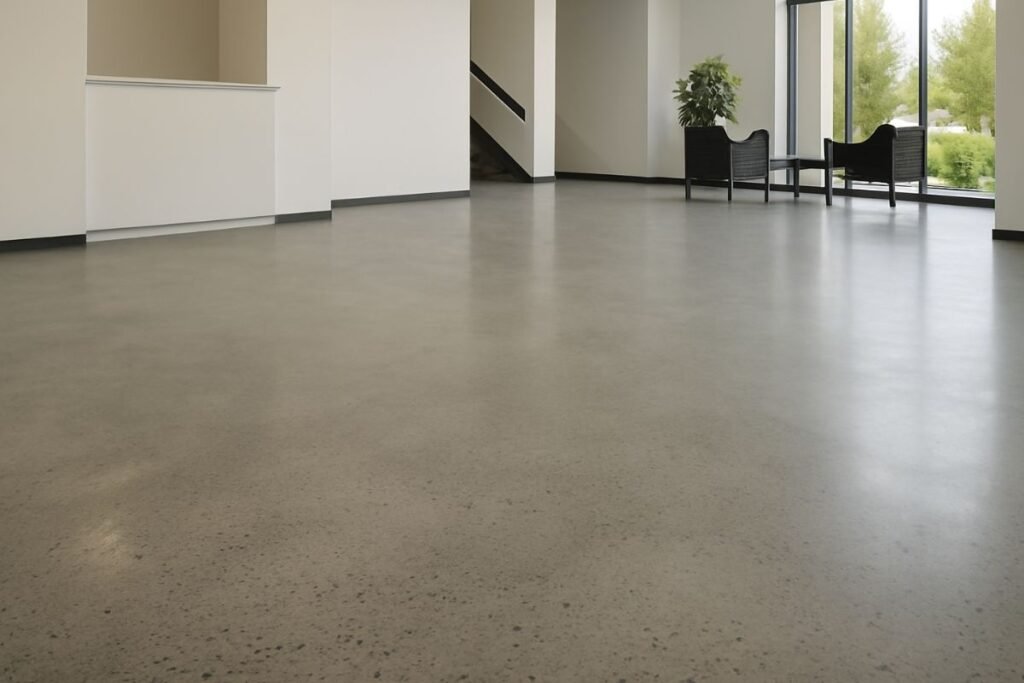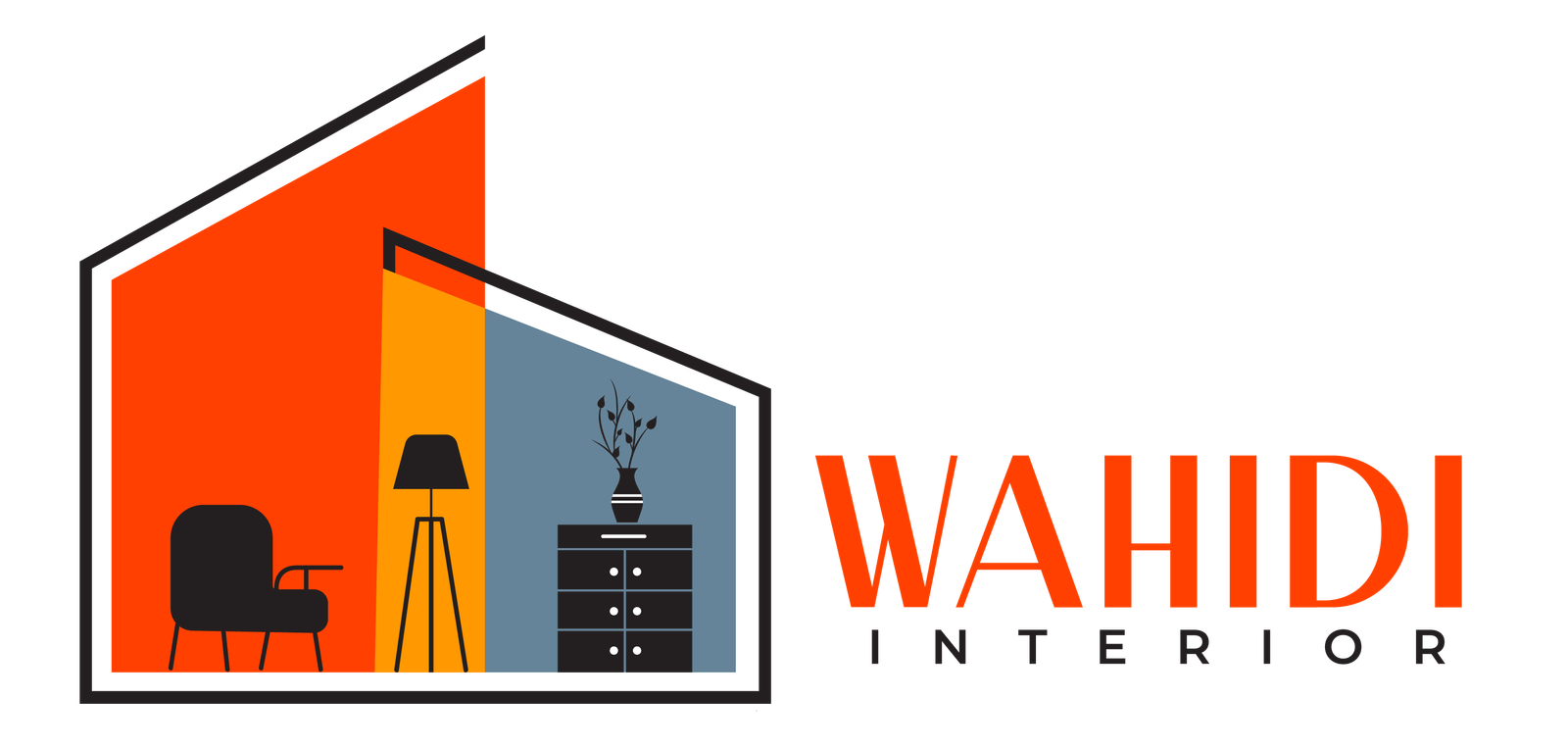Choosing the right commercial flooring types for a commercial space is a decision that combines design, durability, safety, and functionality. Whether you’re running a busy office, managing a retail store, operating a gym, or maintaining an industrial site, the floor you choose will play a vital role in how the space performs daily—and how customers, clients, and staff perceive it.Here’s a detailed breakdown of six popular commercial flooring types to help you make a practical and informed decision.

Vinyl Flooring
Best for: Offices, retail stores, clinics, classrooms
Vinyl flooring is a go-to solution for many commercial spaces. Available in sheets, tiles, and planks, vinyl floors is both flexible and stylish. It mimics natural materials like wood or stone but is much more affordable and easier to maintain.
It is especially popular in high-traffic environments because it resists scratches, moisture, and stains. With proper maintenance, it can last for years without showing signs of wear.
Pros:
- Cost-effective
- Water and stain-resistant
- Wide design variety
- Comfortable underfoot
Cons:
- Can be damaged by heavy objects
- Lower lifespan than rigid floors
Epoxy Flooring
Best for: Warehouses, garages, factories, commercial kitchens
Epoxy flooring is a type of resin-based coating applied over concrete. It creates a smooth, hard, and glossy surface that is incredibly tough. It’s resistant to heavy impacts, chemicals, oil spills, and constant foot or machine traffic.
Many commercial kitchens, warehouses, and manufacturing plants use epoxy floors for its durability and ease of maintenance. Textured options can also prevent slipping.
Pros:
- Seamless and hygienic
- Resistant to chemicals and wear
- Long-lasting
- Ideal for heavy-duty use
Cons:
- Needs professional application
- Can become slippery when wet
Carpet Tiles
Best for: Offices, libraries, hotel rooms, meeting rooms
Carpet tiles combine comfort and convenience. Unlike traditional rolls of carpet, these tiles are modular, which means they can be lifted and replaced individually if stained or worn.
They’re ideal for commercial areas where sound control and warmth are essential. Many modern carpet tiles are made from recycled materials and offer stylish patterns and textures.
Pros:
- Easy to replace sections
- Sound-absorbing
- Soft underfoot
- Various styles available
Cons:
- Can hold dirt and moisture
- Requires frequent vacuuming
Rubber Flooring
Best for: Gyms, childcare centers, hospitals, fitness rooms
Rubber flooring is known for its shock-absorbing and slip-resistant properties. It’s a top choice for gyms and areas where standing for long periods is common. Rubber flooring can handle heavy foot traffic and offers good insulation against sound and temperature.
Many hospitals and schools use rubber floors because they are safe, anti-fatigue, and easy to sanitize.
Pros:
- Great for impact protection
- Slip-resistant
- Long-lasting and resilient
- Easy to clean
Cons:
- Fewer design options
- Slight odor when new
SPC (Stone Plastic Composite) Flooring
Best for: Retail stores, restaurants, offices, showrooms
SPC flooring is an upgraded version of traditional vinyl flooring. It’s made with a core of natural limestone powder, polyvinyl chloride, and stabilizers—resulting in a rigid, waterproof, and highly durable plank.
It combines the visual appeal of wood or stone with impressive resistance to dents, scratches, and water. SPC floor for areas that want both style and performance without frequent maintenance.
Pros:
- Fully waterproof
- Dent and scratch resistant
- Authentic wood and stone textures
- Easy to install
Cons:
- Less comfortable underfoot
- Can cost more than basic vinyl
PVC Flooring
Best for: Healthcare facilities, schools, clean rooms, offices
PVC flooring (made from polyvinyl chloride) is highly valued for its resilience, hygiene, and resistance to chemicals. It is ideal for areas requiring strict cleanliness and long-term durability.
It’s commonly used in healthcare and educational institutions, as it prevents bacterial growth and can be easily disinfected. Available in both tiles and sheet form, PVC flooring also offers design flexibility for color-coded zoning or safety markings.
Pros:
- Moisture and bacteria resistant
- Low maintenance
- Cost-effective
- Soft underfoot
Cons:
- May fade in direct sunlight
- Less rigid than SPC or epoxy
How to Choose the Right Flooring
When selecting commercial flooring, ask yourself:
- What is the purpose of the space? Heavy-duty areas need flooring like epoxy or SPC. Offices or hospitality areas may benefit from carpet or vinyl.
- How much foot traffic will the floor handle? High-traffic zones require more durable surfaces like rubber, SPC, or PVC.
- Is maintenance a concern? If you want low-maintenance options, vinyl, epoxy, and PVC are top choices.
- Do aesthetics matter? For customer-facing businesses, flooring like SPC and vinyl provides style without sacrificing functionality.
Conclusion
Flooring isn’t just a finishing touch—it’s a core part of the commercial space. The right floor sets the tone for employees, visitors, and clients while also standing up to daily wear and tear.
Whether you need a surface that’s safe, attractive, easy to maintain, or all of the above, there’s a commercial flooring type that fits your needs. Consulting with a flooring specialist can help match your priorities with the best material for the job
